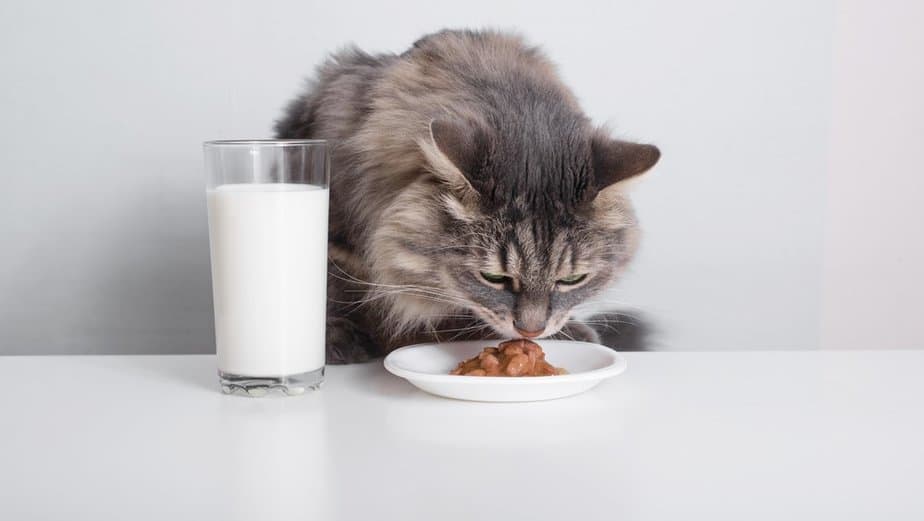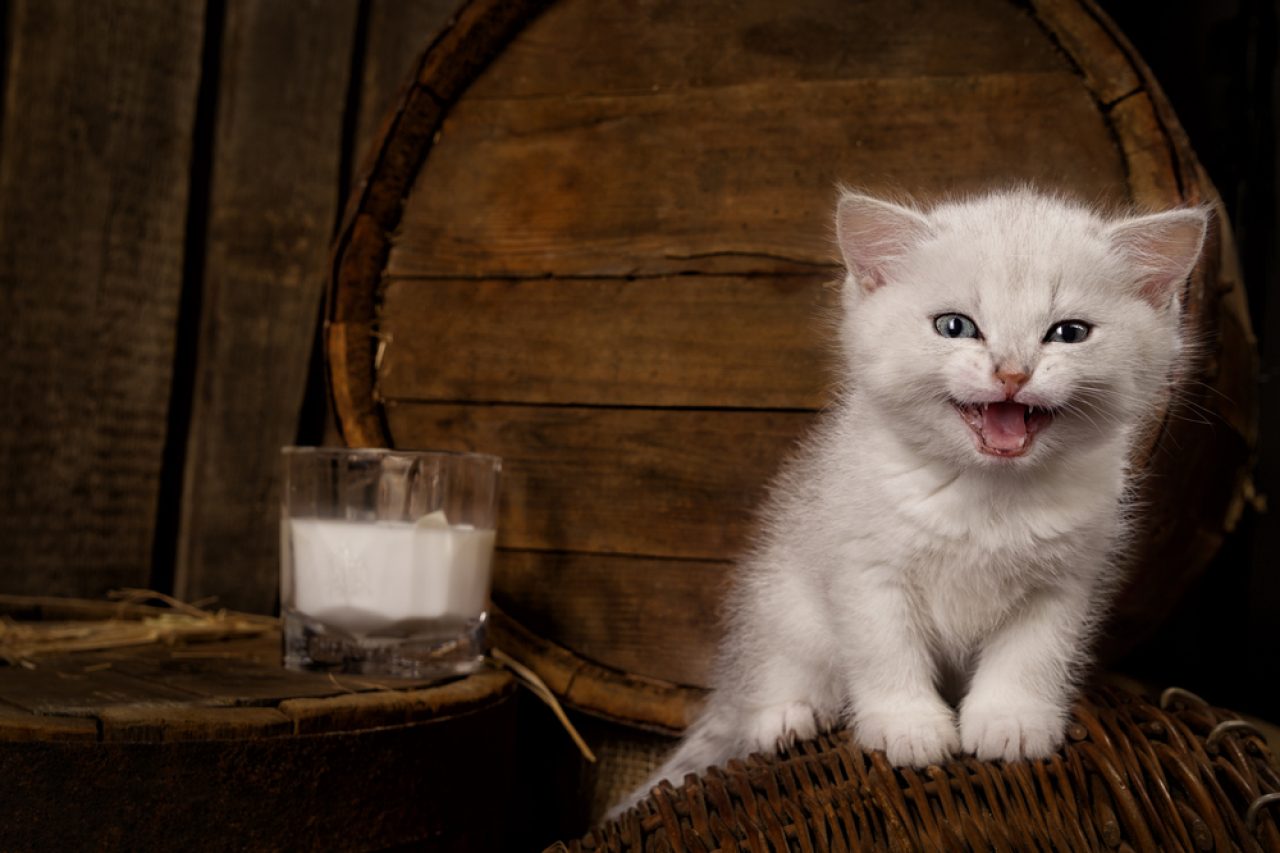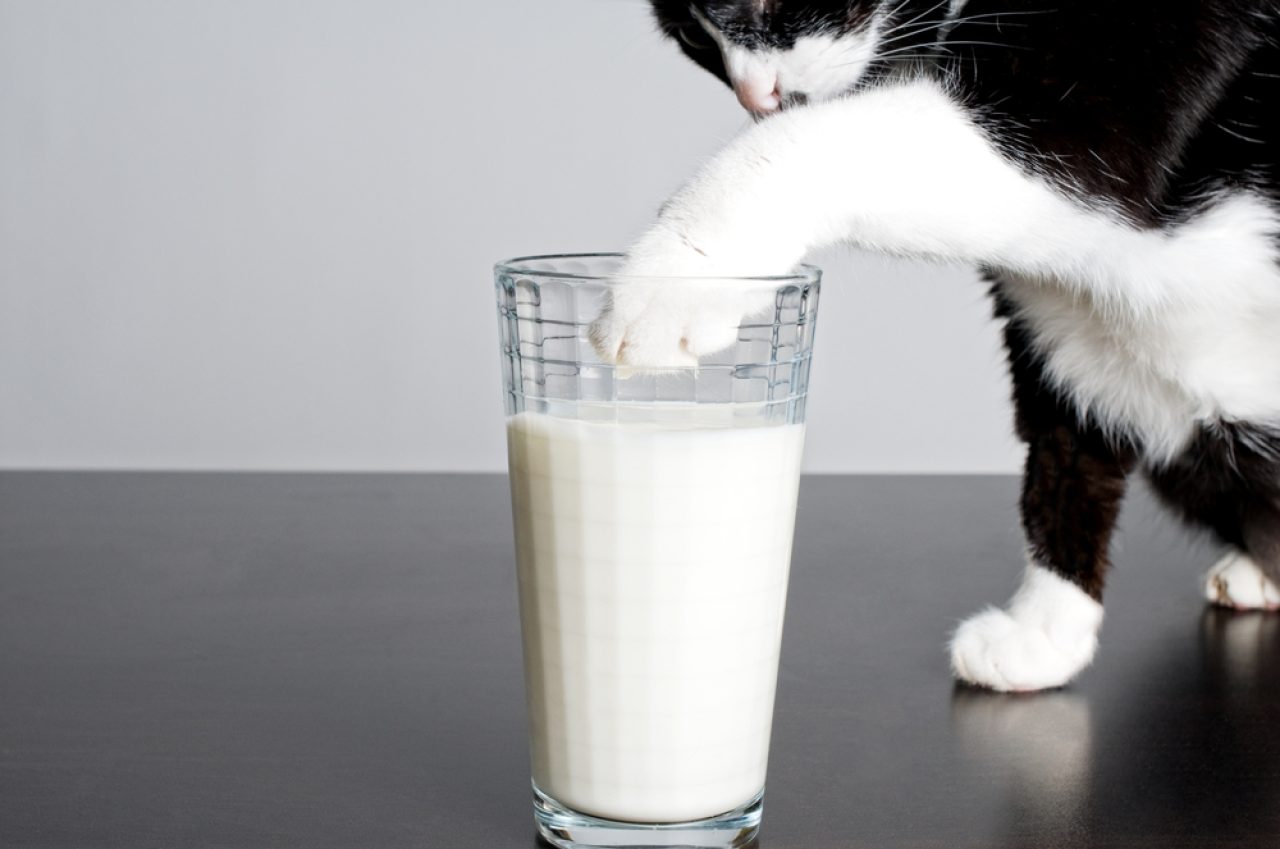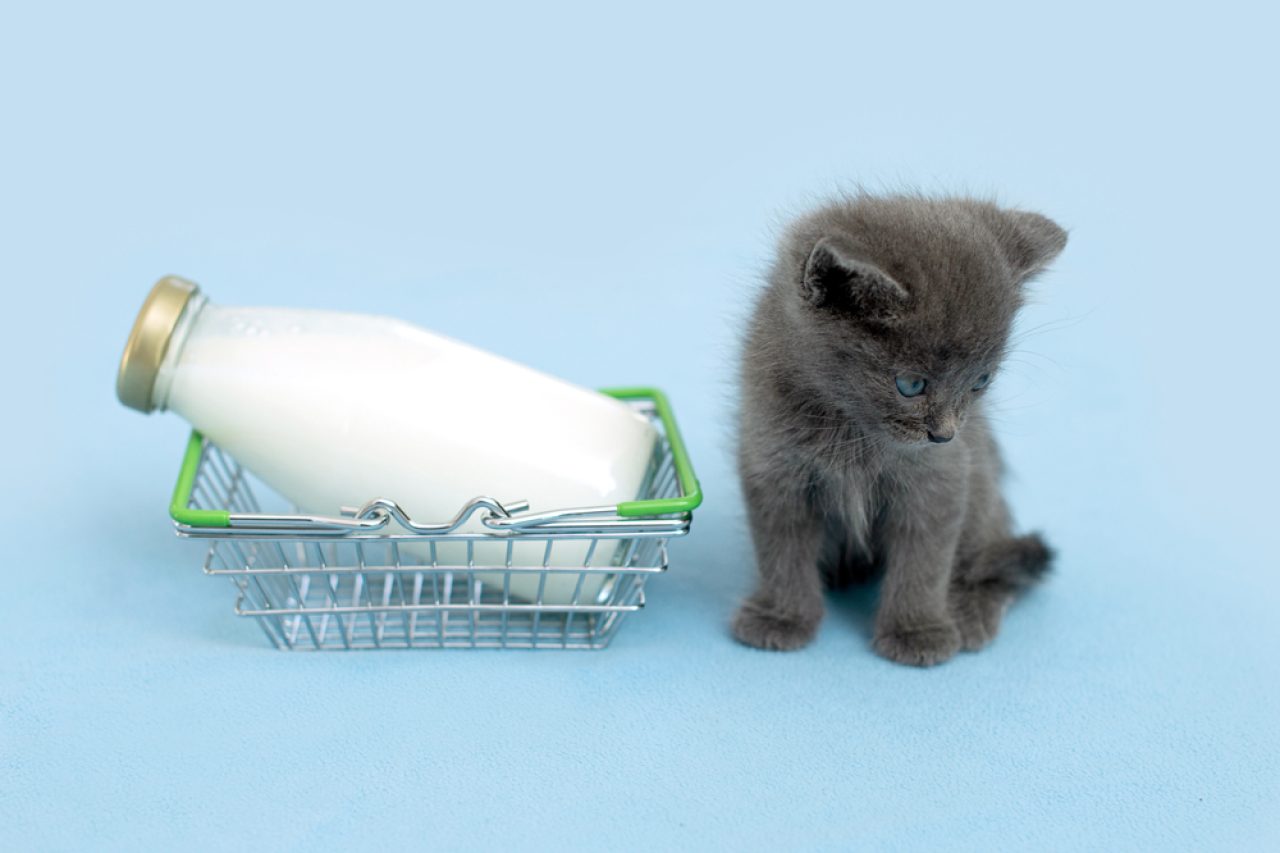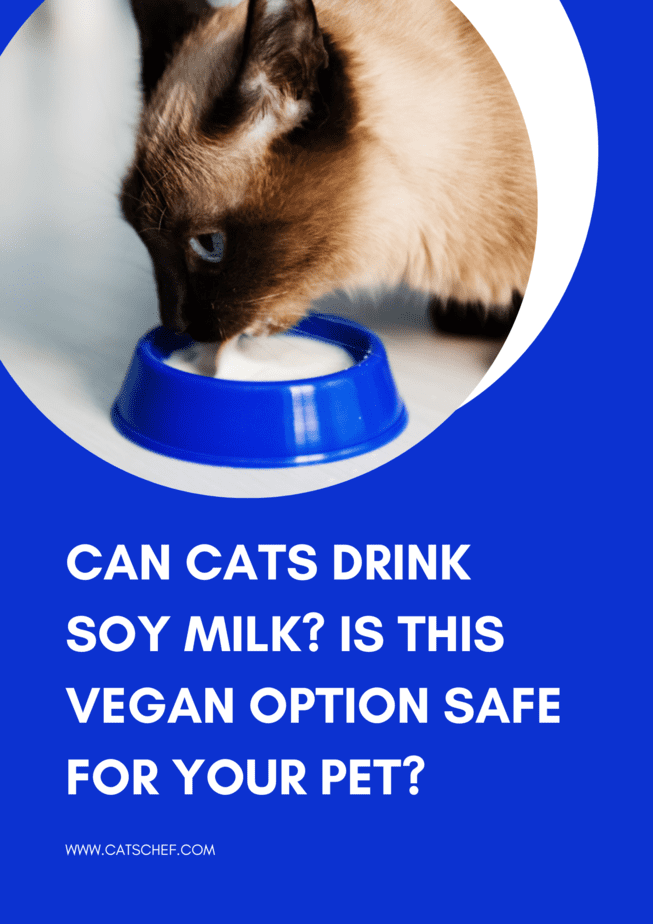📖 Table of Content:
“Can cats drink soy milk?” you ask, as you’re pretty sure your kitto’s plotting a plan to dethrone your regular milk and get you to start purchasing something a bit more… plant-based.
Every time she sees you sipping on your Starbucks Soy Milk Latte, she starts meowing and purring your ears off. She starts putting her paws on your cup (checking whether she can open the lid!?) and gently pushing your hands to make the cup jiggle and release the whisker-wiggling aroma.
She’s clearly trying her best to show you she’s obsessed with your order (and who wouldn’t be, it’s delicious!?) “Hmm, does she want a lick of my coffee or a taste of the soy milk? What am I going on about!? Cats don’t like coffee, she’s clearly after the milk!”
We’re really hoping your mischievous monster isn’t looking to open her own cat-friendly coffee shop (one major problem there – caffeine’s poisonous to cats!) But, given that she’s honestly trying to get you to add soy milk to your grocery list, you might want to take a step back.
Our friends over at the ASPCA (American Society for the Prevention of Cruelty to Animals) don’t recommend giving soy milk to your cat. Soy is not poisonous to cats, but this plant-based beverage does contain a couple of other things that raise questions.
Can cats drink soy milk without any adverse reactions? Can soy milk substitute other sources of hydration and nutrition for your cat? And, can your cat reap any of the benefits soy milk brings to the table? Take a look at what we’ve put together for you before you draw your own conclusions.
Cats are lactose intolerant!?
Oh boy, are you going to be knocked out of your seat if you’ve been living under a rock the past couple of decades! Chances are you’ve been fooled by everyone and everything around you telling you that cats absolutely love drinking milk.
You’ve grown up seeing Tom and Jerry fighting over a thing of milk. Or witnessing Garfield’s love of lasagna (cheese and milk galore) manifesting in his dreams. Or picking out parts of pretty much every single Disney show featuring adorable kittens lapping up a bowl of milk.
Fast forward to today. You’re about to learn that cats are actually lactose intolerant! “Wait, what!? How’s that even a thing!? Was my whole life a lie!?” While they’re adorable little kittens, cats drink their mother’s milk because that’s the only milk that possesses the nutrients they need.
As they grow up, becoming bigger and stronger, they start to lose the need for those nutrients. At the same time, they also start to lose the lactase enzyme that’s necessary to break down and process the lactose that’s found in their mother’s milk.
So, when they’re grown up and accustomed to a different diet (meat, meat, and more meat), they don’t need to drink milk. And, that pretty much includes every single type of milk (cow’s milk, goat’s milk) that contains lactose.
I hear you: “But, soy milk doesn’t contain lactose, not so? Not only that, most humans who can’t have lactose drink soy milk instead of regular milk. Does that mean cats can drink soy milk?”
Can cats drink soy milk?
We’re aware of what goes on behind closed doors of households ruled by four-legged friends. They lurk around every corner, waiting for you to let your guard down so that they can snatch whatever you’re munching on.
Our kittos don’t care whether that something can cause them harm or that they could end up at the emergency animal center. They simply want to see whether the faces you make while you eat have grounds to stand on. And, that’s exactly how they feel about your Starbucks Soy Milk Latte!
But, to everyone’s (especially your cat’s) demise, cats can’t drink soy milk. Soy milk might not be poisonous to cats. But that’s not to say that your cat should drink this plant-based beverage like it’s nothing. One or two licks won’t hurt her THAT much, but you might not want to take that chance.
“What seems to be the problem with soy milk? It’s lactose-free, it’s healthy for humans, and it’s simply the most delicious substitute for regular milk!” That’s true, but humans and cats are VERY different from each other (regardless of what we’d like to think).
Soy milk’s pretty great – when you turn a blind eye to the fact that it’s filled to the brim with carbohydrates and calories that can be detrimental to your cat’s health. Soy milk is typically made from soybeans that have been soaked in boiling water, processed, and strained afterward.
Commercially available soy milk contains a whole lot of sweeteners, additives, and preservatives that are supposed to make the milk taste better and last longer. But these also make the milk undrinkable for your feline friend.
Why cats shouldn’t drink soy milk
Maybe you need more convincing because “But, but, but… My cat’s been giving me the look and I’m not sure whether I can keep telling her that she can’t have soy milk!” That’s completely fine. But here’s a list of things that should be able to sway you and your cat in the right direction.
1. Digestive problems
Soy milk is high in sugar, which is harmful to your cat’s health! Your cat can have a little bit of sugar every now and then. But she shouldn’t make a habit out of it. Sugar is a carbohydrate, and her digestive system can’t process carbohydrates properly because of the lack of enzymes.
Nausea, bloating, vomiting, and diarrhea are only some of the digestive problems your cat may face if she has a go at the rogue carton of soy milk sitting on your kitchen counter. Bad, bad kitty! (And poor, poor kitty afterward!)
2. Tooth decay
And, that same sugar can cause dental disease. Dental disease can lead to tooth decay when left untreated, and can even result in tooth loss. Your little carnivore needs her teeth to munch her kibble and other meaty treats, so you might want to schedule a quick dental check-up.
3. Weight gain and obesity
And, of course, that same sugar can cause your (already somewhat chonky) cat to gain weight. While you might think there’s nothing wrong with a little bit of chub, obesity brings about a whole host of issues such as diabetes, joint strain, and arthritis.
Let’s put things into perspective. Your four-legged friend’s better off munching and sipping on something she can actually benefit from. Clean and fresh water, carefully curated cat foods, and cat treats are the way to go.
